
Korab Mountain: The Majestic Jewel of Albania
Korab Mountain, standing tall at 2,764 meters, is the highest peak in both Albania and North Macedonia. This magnificent mountain is part of the larger Dinaric Alps and offers breathtaking views, rich biodiversity, and a sense of tranquility that is hard to find elsewhere. Whether you're an avid hiker or simply a lover of nature, Korab Mountain promises an unforgettable experience. The trails leading up to the summit are varied, catering to both seasoned trekkers and casual hikers. Along the way, you'll encounter picturesque landscapes dotted with alpine meadows, crystal-clear streams, and a diverse array of flora and fauna. The ascent is challenging but rewarding, with panoramic vistas awaiting you at every turn. Korab Mountain is not just about the climb; it's a journey through history and culture. The surrounding villages are steeped in traditions and offer a glimpse into the rustic lifestyle of the local people. Here, you can taste traditional Albanian cuisine, enjoy the hospitality of the locals, and immerse yourself in the serene beauty of the mountain region.
Local tips in Korab Mountain
- Visit in late spring or early autumn for the best weather conditions and fewer crowds.
- Wear sturdy hiking boots and bring layers, as the weather can change rapidly at higher altitudes.
- Hire a local guide if you're unfamiliar with the trails; they can also share fascinating insights about the area.
- Carry enough water and snacks, as there are limited facilities along the hiking routes.
- Respect the local customs and traditions when visiting nearby villages.
Korab Mountain: The Majestic Jewel of Albania
Korab Mountain, standing tall at 2,764 meters, is the highest peak in both Albania and North Macedonia. This magnificent mountain is part of the larger Dinaric Alps and offers breathtaking views, rich biodiversity, and a sense of tranquility that is hard to find elsewhere. Whether you're an avid hiker or simply a lover of nature, Korab Mountain promises an unforgettable experience. The trails leading up to the summit are varied, catering to both seasoned trekkers and casual hikers. Along the way, you'll encounter picturesque landscapes dotted with alpine meadows, crystal-clear streams, and a diverse array of flora and fauna. The ascent is challenging but rewarding, with panoramic vistas awaiting you at every turn. Korab Mountain is not just about the climb; it's a journey through history and culture. The surrounding villages are steeped in traditions and offer a glimpse into the rustic lifestyle of the local people. Here, you can taste traditional Albanian cuisine, enjoy the hospitality of the locals, and immerse yourself in the serene beauty of the mountain region.
When is the best time to go to Korab Mountain?
Iconic landmarks you can’t miss
Mt Korab
Conquer the Balkans' double-high peak: Hike Mount Korab for stunning views from Albania & North Macedonia's highest point!
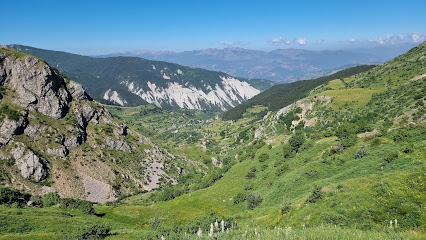
Korabi Mountain Camping
Experience the Albanian Alps: Hiking, farm stays, and local culture near Mount Korab in the heart of Korab-Koritnik Nature Park.
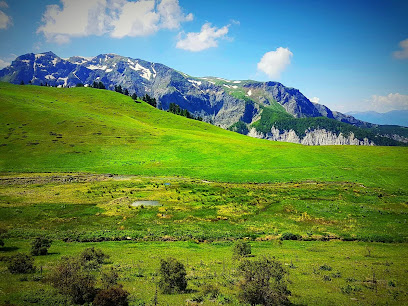
Korabi Turizëm “Loca me shokë”
Discover the heart of Albanian hospitality amidst stunning mountain scenery at Korabi Turizëm “Loca me shokë” in Radomirë.
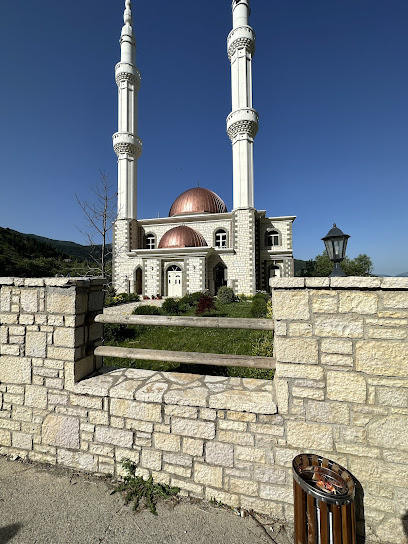
Korab-Koritnik Nature Park / Parku natyror “Korab-Koritnik”
Discover Korab-Koritnik Nature Park: Albania's premier destination for hiking, wildlife, and breathtaking alpine scenery. A Balkan treasure!
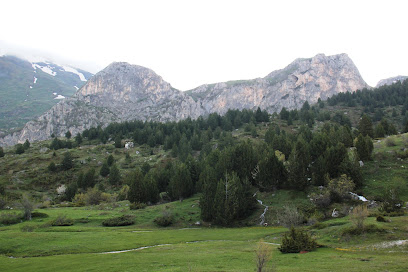
Little Korab Gate
Hike through the Little Korab Gate, a stunning mountain pass on the Albanian-North Macedonian border, offering breathtaking alpine views.

Unmissable attractions to see
Mt Korab
Conquer the Balkans' highest peak! Hike Mount Korab for unmatched views and a unique cross-border adventure in a pristine natural setting.
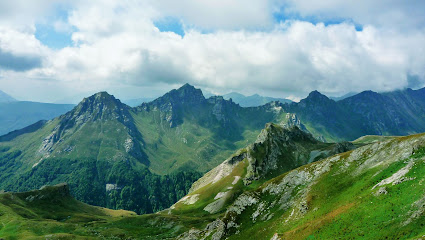
Korabi Turizëm “Loca me shokë”
Discover Albanian hospitality and breathtaking landscapes at Korabi Turizëm, your gateway to Mount Korab and authentic cultural experiences.
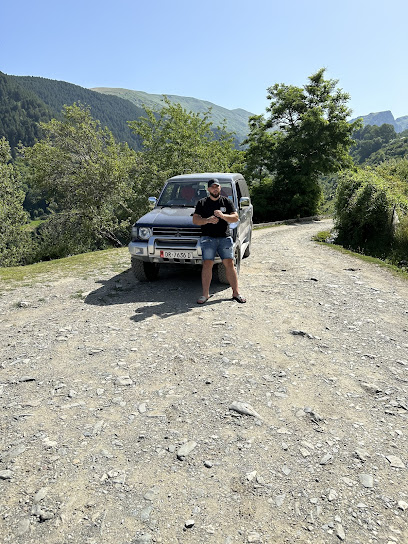
Korab-Koritnik Nature Park / Parku natyror “Korab-Koritnik”
Discover Albania's Korab-Koritnik Nature Park: A haven of alpine beauty, hiking trails, and cultural heritage waiting to be explored.
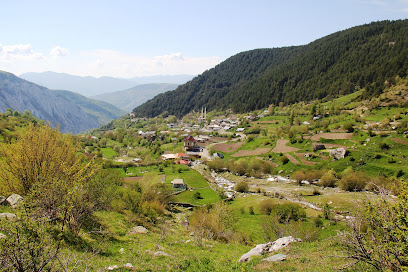
Mavrovo
Explore Mavrovo: North Macedonia's premier destination for national park adventures, skiing, cultural heritage, and stunning lake views.
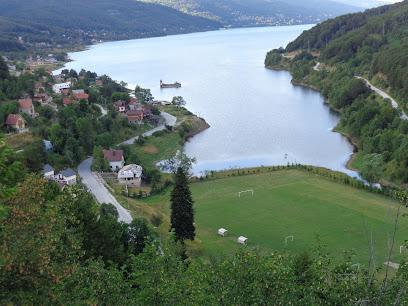
Essential places to dine
Restorant Tymi
Discover authentic Albanian cuisine at Restorant Tymi in Tirana - where tradition meets taste in a cozy setting.
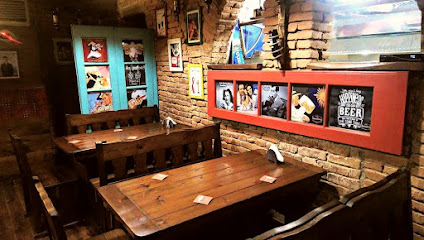
Dajti Balcony's
Discover exquisite Albanian cuisine at Dajti Balcony while enjoying stunning panoramic views from atop Dajti Mountain.
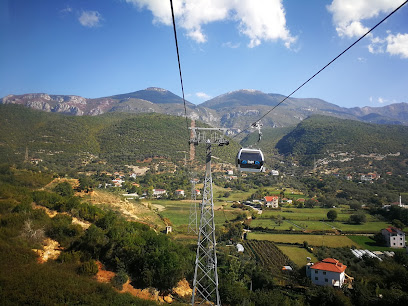
Kodra e Kuajve
Discover Kodra e Kuajve in Durrës: A culinary destination offering exquisite Albanian flavors with stunning sea views.
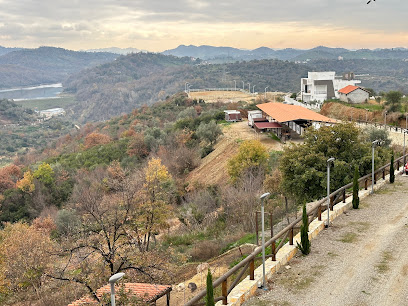
Mullixhiu
Discover authentic Albanian flavors at Mullixhiu, where tradition meets breathtaking views by the artificial lake in Tirana.
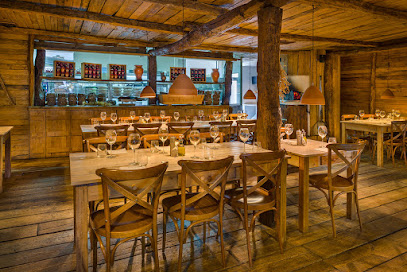
Ceren Ismet Shehu
Discover the flavors of health at Ceren Ismet Shehu in Tirane – where nutritious meets delicious amidst stunning natural beauty.
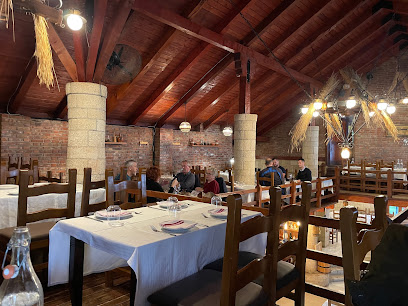
Veranda Restaurant
Experience authentic Albanian cuisine with breathtaking sea views at Veranda Restaurant in Qeparo.
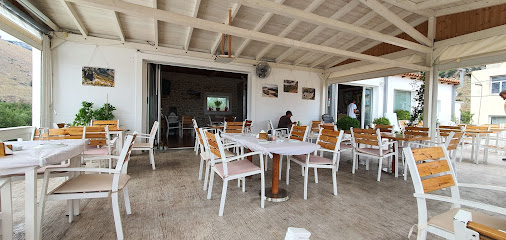
Uka Farm - Traditional Albanian Restaurant & Agrotourism
Discover authentic Albanian cuisine at Uka Farm - where tradition meets taste in every delightful dish.
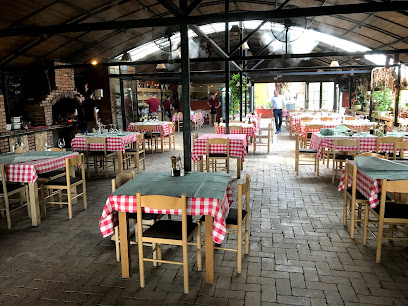
Restaurant Rosa e Tymosur
Experience authentic Albanian flavors at Restaurant Rosa e Tymosur in Pogradec – where tradition meets taste against breathtaking lake views.
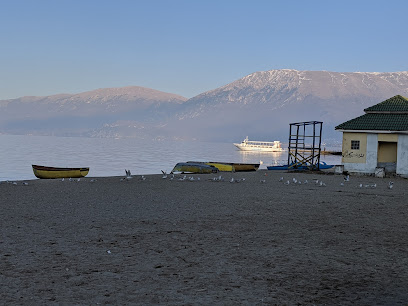
Alto Mare Restaurant
Experience authentic Italian cuisine at Alto Mare Restaurant – where fresh seafood meets Mediterranean flair on Albania's stunning coast.
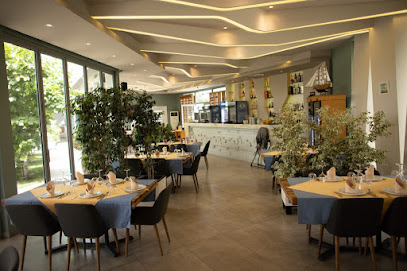
Turtle Farm Albania
Discover authentic Albanian flavors at Turtle Farm Albania, where fresh ingredients meet warm hospitality in a charming setting.
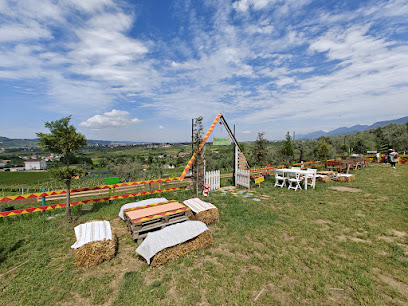
Sunshine Spille
Experience authentic Albanian cuisine at Sunshine Spille - where every meal is a celebration of local flavors by the Adriatic coast.
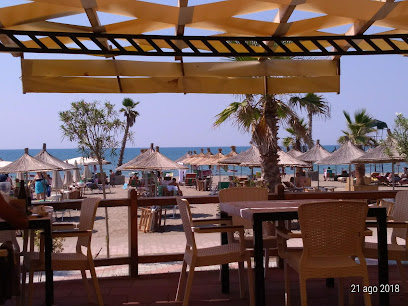
Restaurant Tomas
Discover authentic Albanian cuisine and warm hospitality at Restaurant Tomas in scenic Boboshticë.
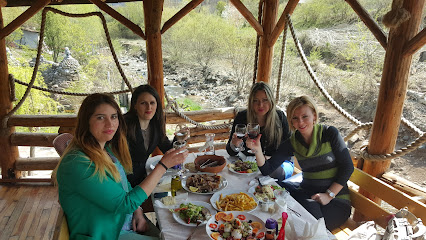
Posh Beach
Experience tranquility at Posh Beach in Spille, Albania - where golden sands meet crystal-clear waters for an unforgettable getaway.
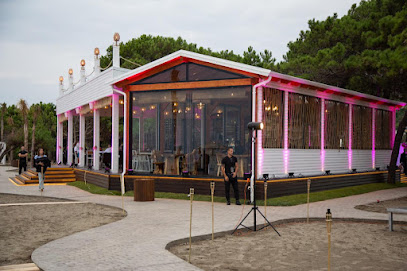
Guest House Korabi
Experience authentic Albanian hospitality at Guest House Korabi - a serene retreat nestled in Radomirë's stunning landscapes.
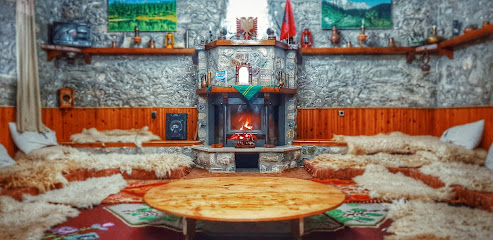
Brutal Steakhouse Durres
Experience exquisite flavors at Brutal Steakhouse in Durres—where Mediterranean meets Italian culinary traditions.
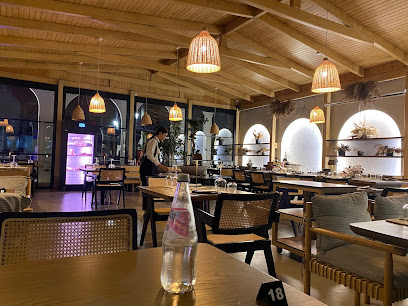
Markets, malls and hidden boutiques
TEG - Tirana East Gate
Tirana East Gate: Albania's premier shopping mall, offering a mix of international brands, local boutiques, and diverse dining options to enhance your travel experience.
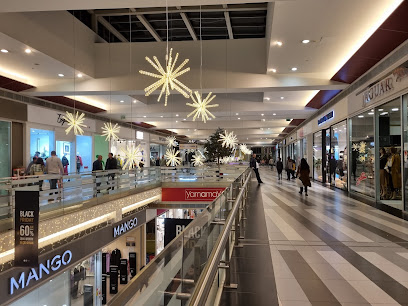
Tirana Ring Center
Discover the vibrant shopping experience at Tirana Ring Center, offering a wide range of stores and delightful dining options in the heart of Tirana.
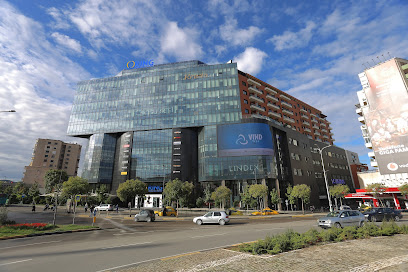
QTU Riviera
Discover shopping bliss at QTU Riviera, Vlorë's top destination for fashion, dining, and entertainment in a modern setting.
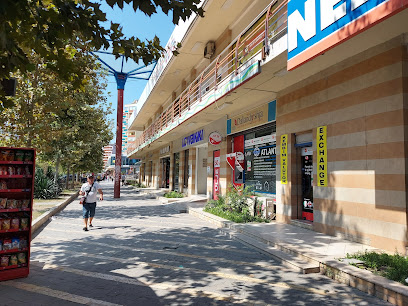
Souvenir Albania
Uncover the essence of Albania with unique handcrafted souvenirs and local treasures at Souvenir Albania in Tirana.
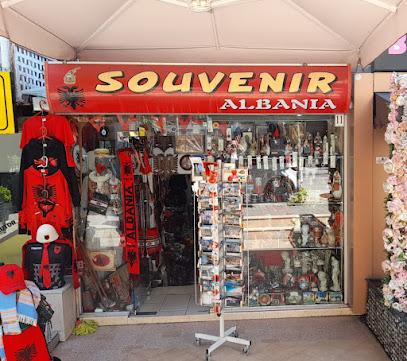
Market Dhori
Discover fresh produce and traditional Albanian flavors at Market Dhori, a vibrant supermarket and food market in Elbasan.
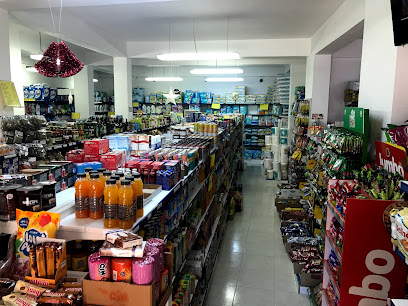
CREW SHOP TIRANA
Explore the extensive marine supplies at CREW SHOP TIRANA, your go-to destination for all boating needs in the heart of Albania.
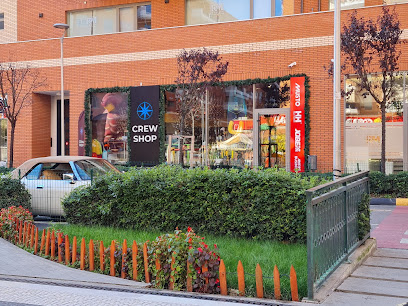
Korabi Mountain Camping
Experience the breathtaking beauty of Korabi Mountain Camping in Albania – a perfect escape to nature filled with adventure and local flavors.
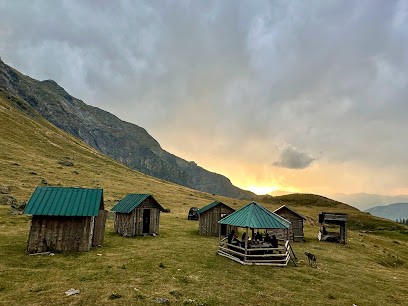
Diverso Homeal Souvenir
Explore the charm of Albanian craftsmanship at Diverso Homeal Souvenir, a must-visit destination for authentic keepsakes in Elbasan.
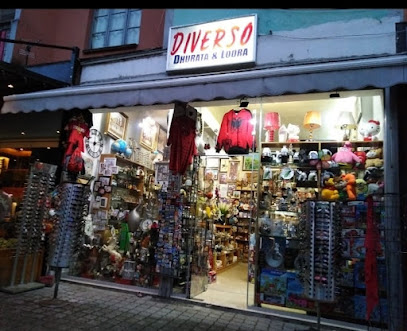
Armë gjuetie LEKA SHPK
Discover the best gun shop in Elbasan, Albania, featuring a wide selection of firearms, expert advice, and competitive prices for all enthusiasts.
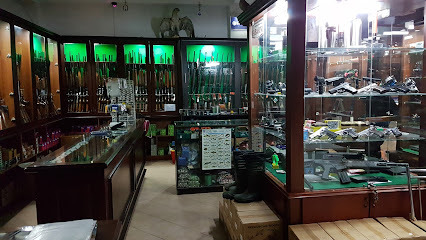
byBlerina
Discover byBlerina, a premier scrapbooking store with a wide range of materials and workshops for all crafting enthusiasts. Unleash your creativity!
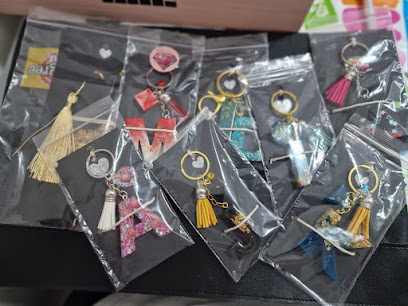
Shtepia E Brumrave
Experience the rich flavors of Albanian pastries at Shtepia E Brumrave, a delightful bakery in Elbasan, renowned for its exceptional treats.
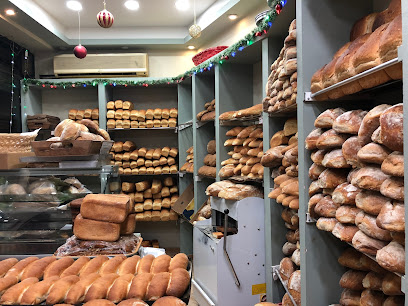
J.O.K.A
Explore J.O.K.A in Elbasan for an exceptional selection of stylish and comfortable footwear that reflects local fashion trends.
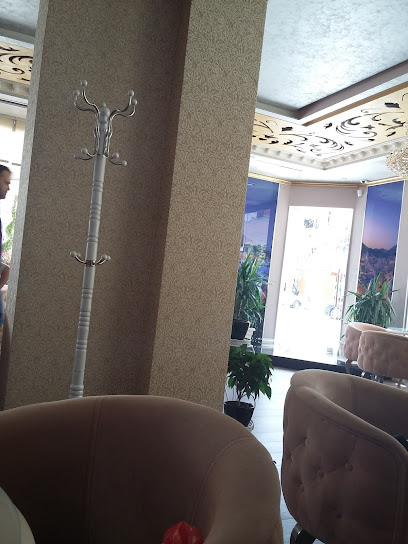
Men's way boutique
Explore Men's Way Boutique in Elbasan, Albania - your go-to destination for stylish men's clothing and contemporary fashion.
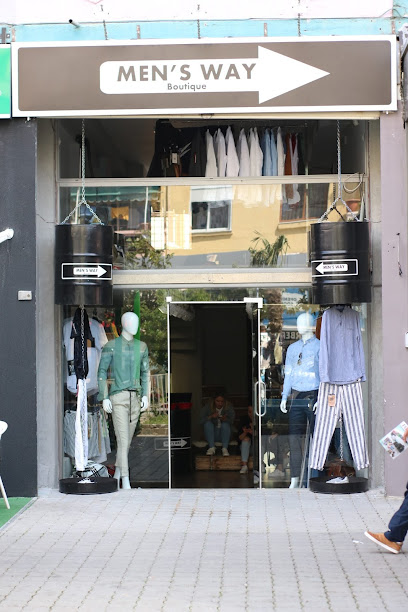
Market Balliu
Discover the heart of Labinot-Fushë at Market Balliu, your local grocery store for authentic Albanian flavors and fresh produce.
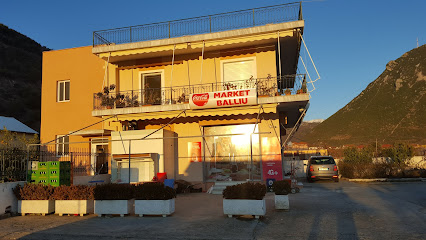
Boutique Milano
Explore Boutique Milano in Elbasan for a delightful shopping experience filled with unique clothing that captures the essence of Albanian culture.
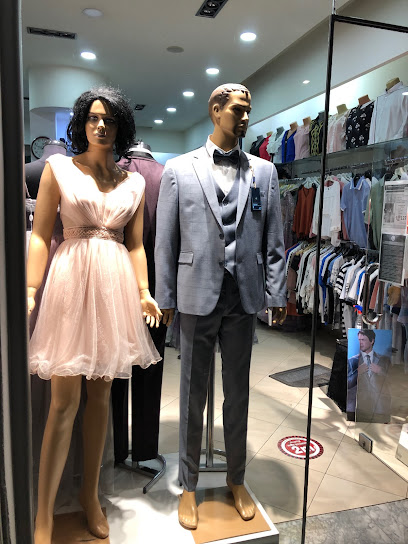
Essential bars & hidden hideouts
Radio bar Tirana
Discover the unique atmosphere and innovative cocktails at Radio Bar Tirana, a vibrant hotspot in Albania's capital for nightlife enthusiasts.
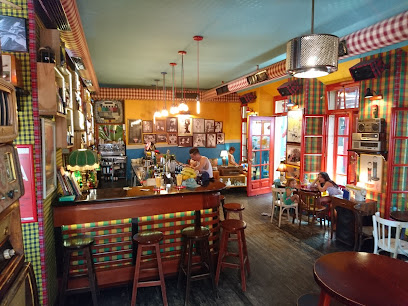
New Irish Pub
Discover the vibrant atmosphere of New Irish Pub in Tirana, where live music, delightful food, and friendly vibes await every visitor.
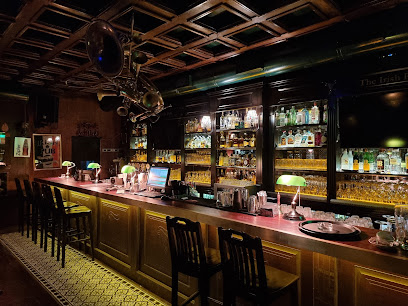
Hemingway Bar Tirana
Discover the vibrant jazz scene at Hemingway Bar Tirana, where live music meets a cozy social atmosphere for an unforgettable night.
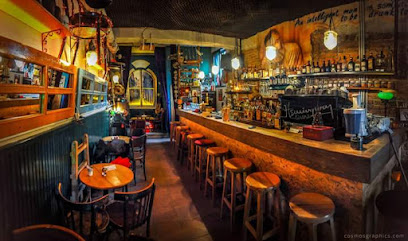
Colonial Cocktails Academy Tirana
Discover the art of mixology at Colonial Cocktails Academy Tirana, where unique flavors and creative cocktails await in a cozy atmosphere.
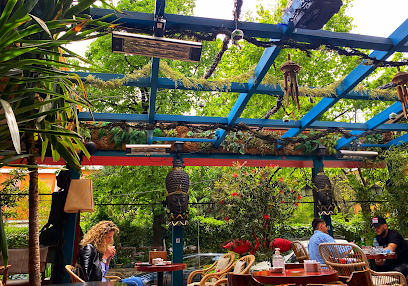
Nouvelle Vague Tirana
Experience the best of Tirana's nightlife at Nouvelle Vague, a stylish cocktail bar offering unique drinks and a vibrant atmosphere for all.
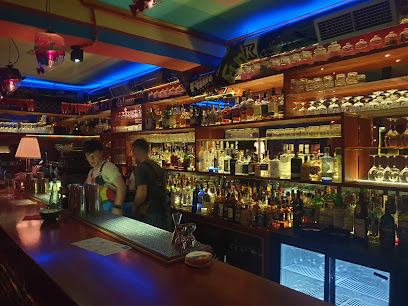
Illyrian Saloon
Experience the vibrant nightlife at Illyrian Saloon, a unique bar in Tirana featuring creative cocktails and a welcoming atmosphere.
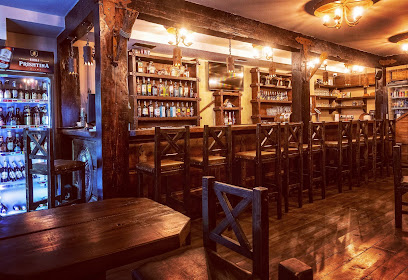
Bunker1944 Lounge
Discover the eclectic charm of Bunker1944 Lounge, a unique bar in Tirana that blends history with modern nightlife for an unforgettable experience.
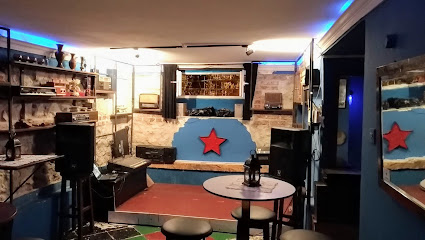
Capriccio
Experience the heart of Tirana at Capriccio, where delicious coffee and a cozy atmosphere create unforgettable moments.
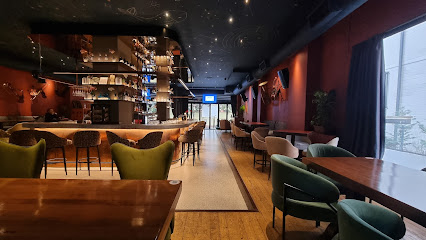
Bar Living
Experience Elbasan's vibrant nightlife at Bar Living, where great drinks and a lively atmosphere come together for an unforgettable evening.
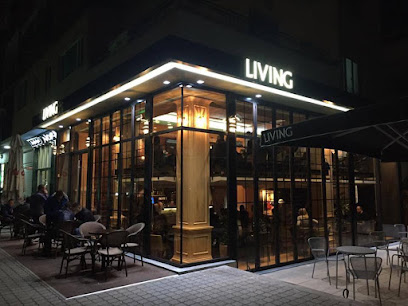
Bar Restorant Zeni
Experience authentic Albanian dining at Bar Restorant Zeni, where local flavors and warm hospitality create a memorable culinary journey.
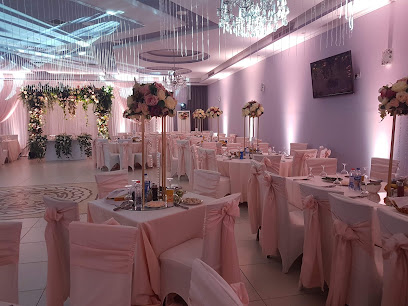
Rosvelt
Experience the vibrant cocktail culture at Rosvelt in Elbasan, where tradition meets innovation in every sip.
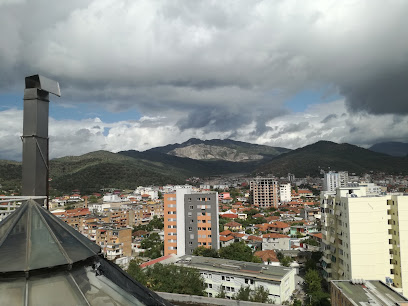
Mu-Ka-Tek Restorant Bar
Discover the perfect blend of traditional Albanian cuisine and a lively bar atmosphere at Mu-Ka-Tek Restaurant Bar in Elbasan.
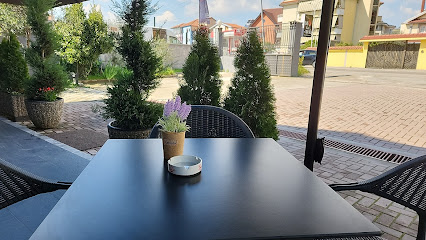
Kapricio
Experience the vibrant nightlife of Elbasan at Kapricio, where local flavors and friendly atmosphere come together in a lively bar setting.
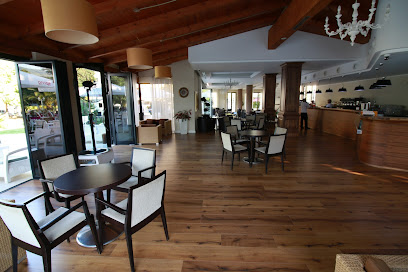
De Baron Lounge Bar
Experience the vibrant nightlife at De Baron Lounge Bar in Elbasan, where exquisite drinks meet a lively atmosphere for unforgettable evenings.
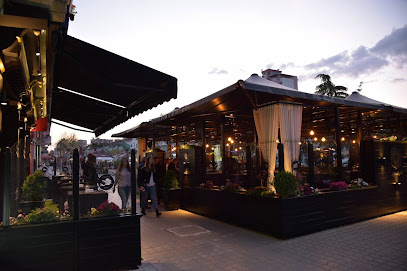
Local Phrases about Korab Mountain
-
- HelloTungjatjeta
[toon-jah-tyeh-tah] - GoodbyeMirupafshim
[mee-roo-pahf-sheem] - YesPo
[poh] - NoJo
[yoh] - Please/You're welcomeJu lutem
[yoo loo-tehm] - Thank youFaleminderit
[fah-leh-meen-deh-reet] - Excuse me/SorryMë falni
[muh fahl-nee] - How are you?Si jeni?
[see yeh-nee] - Fine. And you?Mirë. Ju?
[mee-ruh. yoo] - Do you speak English?A flisni anglezisht?
[ah flees-nee ahn-gleh-zeest] - I don't understandNuk kuptoj
[nook koop-toy]
- HelloTungjatjeta
-
- I'd like to see the menu, pleaseDua të shoh menunë, ju lutem
[doo-ah tuh shoh meh-noo-neh, yoo loo-tehm] - I don't eat meatNuk ha mish
[nook hah meesh] - Cheers!Gëzuar!
[geh-zoo-ar] - I would like to pay, pleaseDua të paguaj, ju lutem
[doo-ah tuh pah-gwai, yoo loo-tehm]
- I'd like to see the menu, pleaseDua të shoh menunë, ju lutem
-
- Help!Ndihmë!
[ndee-muh] - Go away!Shko larg!
[shkoh lahr-g] - Call the Police!Thirrni Policinë!
[theer-nee poh-lee-tsee-neh] - Call a doctor!Thirrni një doktor!
[theer-nee nyuh dohk-tohr] - I'm lostJam i humbur
[yahm ee hoom-boor] - I'm illJam i sëmurë
[yahm ee suhm-roo]
- Help!Ndihmë!
-
- I'd like to buy...Dua të blej...
[doo-ah tuh bleh] - I'm just lookingPo shikoj vetëm
[poh shee-koy veh-tuhm] - How much is it?Sa kushton?
[sah koosh-ton] - That's too expensiveËshtë shumë e shtrenjtë
[uhshtuh shoo-muh eh shtrehn-tyuh] - Can you lower the price?A mund ta ulni çmimin?
[ah moond tah ool-nee chmee-meen]
- I'd like to buy...Dua të blej...
-
- What time is it?Sa është ora?
[sah uhshtuh oh-rah] - It's one o'clockËshtë një ora
[uhshtuh n-yuh oh-rah] - Half past (10)Njëmbëdhjetë
[nyuhm-buh-dheh-teh] - MorningMëngjes
[muhn-gyes] - AfternoonPasdite
[pahs-dee-teh] - EveningMbrëmje
[mbruhm-yeh] - YesterdayDje
[djeh] - TodaySot
[soht] - TomorrowNesër
[neh-sehr] - 1Një
[nyuh] - 2Dy
[duh] - 3Tre
[treh] - 4Katër
[kah-tur] - 5Pesë
[peh-suh] - 6Gjashtë
[gyahsht] - 7Shtatë
[shtah-tuh] - 8Tetë
[teh-tuh] - 9Nëntë
[nuhn-tuh] - 10Dhjetë
[thyeh-tuh]
- What time is it?Sa është ora?
-
- Where's a/the...?Ku është një/...?
[koo uhshtuh nyuh/...?] - What's the address?Cila është adresa?
[chee-lah uhshtuh ah-dreh-sah?] - Can you show me (on the map)?A mund të më tregoni (në hartë)?
[ah moon-d tah muh troh-goh-nee (nuh hahr-teh)?] - When's the next (bus)?Kur është autobusi i ardhshëm?
[koor uhshtuh ow-toh-boo-see ee ahrd-shuhm?] - A ticket (to ....)Një biletë (për ....)
[nyuh bee-leh-tuh (puhr ....)]
- Where's a/the...?Ku është një/...?
History of Korab Mountain
-
Korab Mountain and its surrounding areas have been inhabited since prehistoric times. Archaeological findings suggest that ancient Illyrian tribes once settled in this region. The rugged terrain provided natural fortification, while the lush valleys offered fertile land for agriculture. These early inhabitants left behind traces of their existence, including tools, pottery, and remnants of their dwellings.
-
During the medieval period, the strategic importance of Korab Mountain was recognized by various rulers. Several fortresses and castles were constructed to defend against invasions. Notable among these is the Castle of Doda Bar, which overlooks the Dibër region. These fortifications played crucial roles during conflicts between local lords and expanding empires, such as the Byzantine and Ottoman Empires.
-
Korab Mountain fell under Ottoman rule in the 15th century, which lasted for several centuries. The Ottomans left a significant cultural imprint on the region, influencing local architecture, cuisine, and traditions. The construction of mosques and caravanserais facilitated trade and cultural exchange. The mountain's remote villages became melting pots of diverse customs and practices during this period.
-
The late 19th and early 20th centuries were marked by a fervent struggle for independence from Ottoman rule. The rugged terrain of Korab Mountain provided a refuge for Albanian nationalists and guerrilla fighters. Many skirmishes and battles took place in the region as local fighters resisted Ottoman forces. This period culminated in Albania's declaration of independence in 1912.
-
Korab Mountain played a significant role during World War II as a stronghold for Albanian partisans fighting against Axis forces. Its dense forests and steep slopes offered ideal conditions for guerrilla warfare. The mountain was the site of numerous battles and ambushes, with partisans using their knowledge of the terrain to their advantage. Their efforts contributed to the eventual liberation of Albania.
-
In the decades following World War II, Albania experienced a period of isolation under communist rule. Korab Mountain's remote location meant it remained largely untouched by modernization. However, the government initiated several development projects, including the construction of roads and infrastructure to connect the mountain villages with the rest of the country. These efforts aimed to improve living conditions and promote economic growth in the region.
-
Korab Mountain is home to a rich tapestry of cultural heritage and traditions. The local communities have preserved age-old customs, folklore, music, and dance. Traditional festivals, such as the Diten e Veres (Day of Summer) and various harvest celebrations, are held throughout the year. These events offer a glimpse into the vibrant cultural life that thrives amidst the mountain's breathtaking landscapes.
-
In recent years, Korab Mountain has gained recognition as a destination for ecotourism. Efforts are being made to promote sustainable development that balances tourism with conservation. Hiking, trekking, and nature tours are popular activities that attract visitors seeking to explore the mountain's pristine beauty. Local initiatives focus on preserving the natural environment while providing economic opportunities for the communities that call Korab Mountain home.
Korab Mountain Essentials
-
Korab Mountain is located on the border between Albania and North Macedonia. The nearest international airport in Albania is Tirana International Airport (Nënë Tereza), approximately 140 kilometers away. From Tirana, you can take a bus or taxi to Peshkopi, the nearest town to Korab Mountain. The journey from Tirana to Peshkopi typically takes around 3 to 4 hours by road. Alternatively, if you are coming from North Macedonia, the nearest city is Skopje, from where you can also take a bus or taxi to the mountain.
-
Once you are in Peshkopi, local transportation options include taxis and minibuses (furgons). Taxis are readily available and can be hired for a full day to explore the surrounding areas. Furgons operate on set routes and are a cost-effective way to travel but may not always adhere to a strict schedule. Renting a car is also an option if you prefer to explore at your own pace. However, be aware that road conditions can vary, especially in rural areas.
-
The official currency in Albania is the Albanian Lek (ALL). Credit cards are accepted in some hotels, restaurants, and shops, but it is advisable to carry cash, especially in smaller establishments and rural areas. ATMs are available in Peshkopi, but it is wise to withdraw sufficient cash before heading to more remote areas to ensure you have enough funds.
-
Korab Mountain and its surrounding areas are generally safe for tourists. However, as with any travel destination, it is advisable to take standard precautions. Avoid walking alone at night in unfamiliar areas and keep an eye on your belongings in crowded places. There are no specific high-crime areas targeting tourists, but it is always best to stay vigilant and aware of your surroundings.
-
In case of emergency, dial 112 for immediate assistance. The local police station and medical facilities are available in Peshkopi. It is recommended to have travel insurance that covers medical emergencies. For minor health issues, there are pharmacies in Peshkopi where you can purchase over-the-counter medications.
-
Fashion: Do dress modestly, especially when visiting religious sites. Avoid wearing overly revealing clothing. Religion: Do respect local customs and traditions. When visiting mosques, cover your head and remove your shoes before entering. Public Transport: Do be respectful and give up your seat to elderly passengers. Don’t eat or drink on public transport. Greetings: Do greet people with a handshake. A slight bow of the head is also a sign of respect. Eating & Drinking: Do try local delicacies and accept food offerings graciously. Don’t refuse hospitality, as it is considered impolite.
-
To experience Korab Mountain like a local, visit the local markets in Peshkopi where you can buy fresh produce and traditional Albanian goods. Engage with locals, as they are often friendly and willing to share stories about the area's history and culture. Don't miss visiting the thermal baths in Peshkopi, known for their therapeutic properties. For a unique experience, consider hiking with a local guide who can offer insights into the flora, fauna, and history of the region.
Nearby Cities to Korab Mountain
-
Things To Do in Gjakova
-
Things To Do in Krujë
-
Things To Do in Bajram Curri
-
Things To Do in Lezhë
-
Things To Do in Tirana
-
Things To Do in Ferizaj
-
Things To Do in Shtime
-
Things To Do in Peja
-
Things To Do in Pogradec
-
Things To Do in Durres
-
Things To Do in Kavajë
-
Things To Do in Gjilan
-
Things To Do in Ulcinj
-
Things To Do in Vushtrri
-
Things To Do in Kamenica







